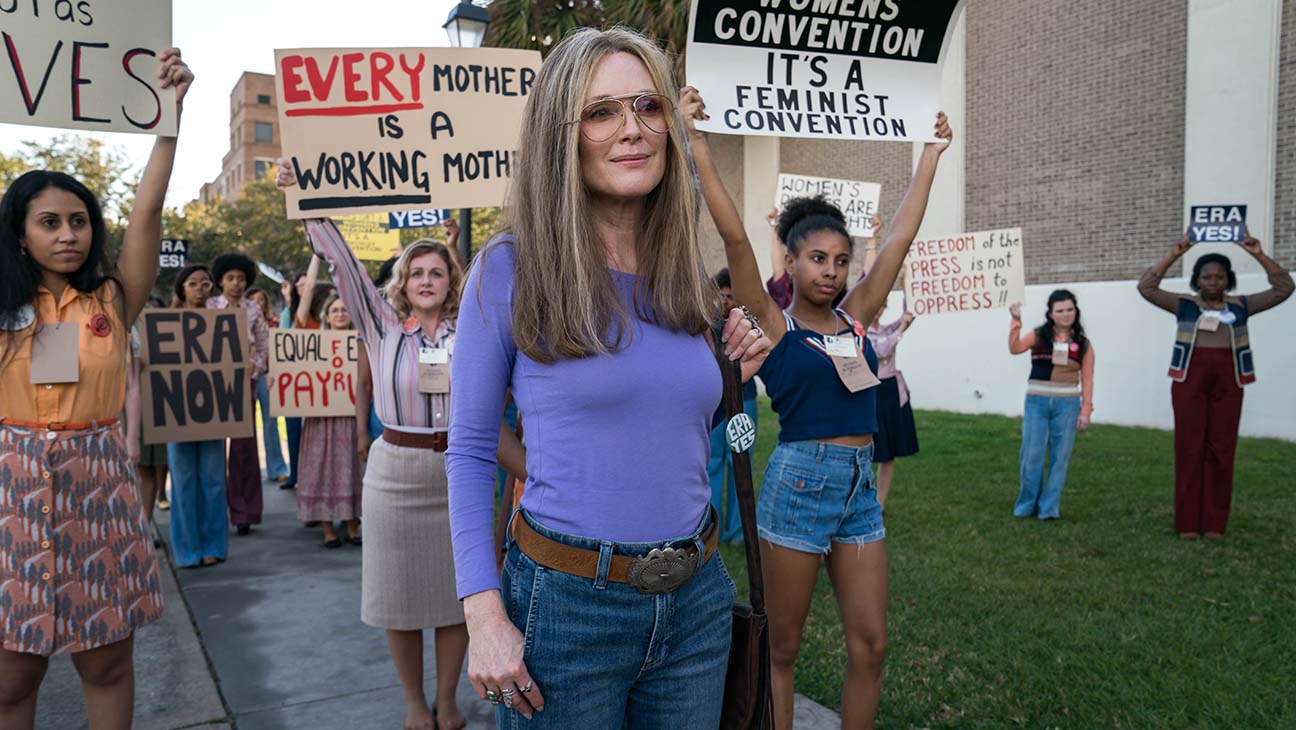Ren Jender reporting from Sundance

Director Julie Taymor's The Glorias adapted (by Taymor and Sarah Ruhl) from Gloria Steinem's 2015 book "My Life on the Road" premiered this past Sunday at Sundance to long applause and a talk afterward between Steinem and Taymor. But those who have read Steinem's books and paid more than cursory attention to her feminist activism will be disappointed in how clunky and oversimplified the script is. One groan-worthy device has Gloria, at various ages, (the majority of the time she’s played either by either by a stiff Alicia Vikander or a warmer, but still anodyne, Julianne Moore) sitting in a bus looking out the window and conversing with her previous selves...
The Glorias also discounts Steinem's own observations. Steinem has written about the fear of public speaking that the film touches on but doesn't mention what Steinem has noted: in old clips of her talking to the press, she wasn't the shaky-voiced wreck she had imagined herself to be but a relatively composed, articulate presence, an echo of those of us who upon seeing old photos of ourselves can't believe how good we looked-- and how terrible we thought we looked at the time.
The film curiously omits Shirley Chisholm who ran for president (and whom Steinem supported) in 1972. But, at various stages of her life, Gloria is in the company of and working with a single woman of color (including Janelle Monáe as Dorothy Pitman Hughes and Lorraine Toussaint as Flo Kennedy) but their very brief time onscreen gives short shrift to the accomplishments and philosophies of these women. Touissant looks great in Flo's western wear (most of the costumes, by Sandy Powell, are less fun, recreating the drab clothing of the early 70s a little too well), but she doesn't get lines nearly as meaty as one from Kennedy's autobiography
"...marriage is a crock. Why should you lock yourself in the bathroom just because you have to go three times a day?"
 Director Julie Taymor and Gloria Steinem
Director Julie Taymor and Gloria Steinem
In fact the feminists in this film never says anything that could be considered even mildly controversial for present-day audiences (which was certainly not the case for actual second-wave feminists or for Steinem herself, even today) so their accomplishments seem like foregone conclusions instead of hard-won, grueling slogs the battles for Civil Rights were shown to be in Ava DuVernay's Selma.
What this film does have in common with DuVernay's masterpiece is unfortunate: both barely acknowledge the queer people who helped make these movements possible. The Glorias has a blink-and-you-miss-it scene where queer rights are brought on board as part of feminism's goals, but the film's Gloria doesn't even seem to know any queer women, in New York, in the women's movement, in the 1970s!